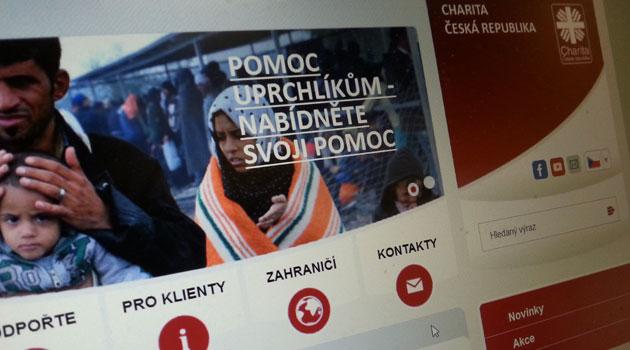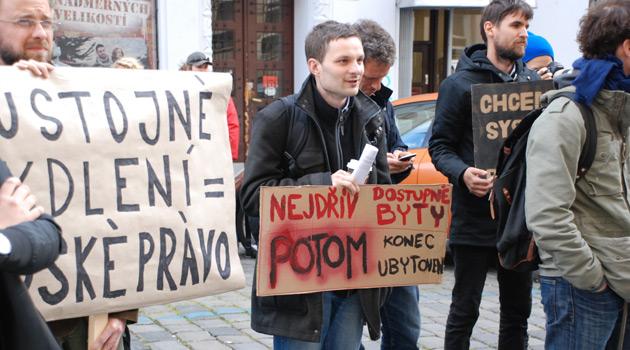Czech Caritas says changes to housing benefit may launch an avalanche of homelessness

Representatives of Caritas Czech Republic are criticizing recent restrictions on housing benefits for people living in so-called areas with an “increased incidence of undesirable phenomena” and in residential hotels because the new rules could lead to an increased number of homeless persons. The organization is one of the biggest aiding those in need.
Caritas oversees 348 local charities providing services to impoverished people, persons living with disabilities, and senior citizens. According to a Czech Government report this year on the state’s fulfillment of its Homelessness Prevention Concept, there are about 68 500 homeless people in the country.
Almost 120 000 adults and children are living in insecure or substandard housing and are at risk of losing it. People in residential hotels are able to receive just 80 % of the regular housing benefit.
According to this year’s amendment to the law on aid to those in material distress, municipalities can also partially decide where housing benefits will be disbursed on their territory. In locations where public order is disrupted, where children are at risk, or where persons are under the influence of alcohol and drugs it is now possible to declare such areas ones with an “increased incidence of socially undesirable phenomena”.
The Labor Office will not be able to disburse housing benefits to any new applicants residing in those areas. In the town of Sokolov, people living in certain areas will no longer be receiving this benefit.
Přerov, Ústí nad Labem, and other towns want to designate certain buildings and certain streets as off-limits for housing benefits. “The changes to the housing benefits can launch an avalanche,” Martina Veverková of Caritas Czech Republic told the Czech News Agency.
“People will do their best to find housing nearby. Similar measures will then be adopted by other towns,” she predicted.
“That can lead in an increased incidence of homelessness,” the charity worker said. She pointed out that in the Czech Republic there is no housing designated as “affordable” or “social” into which people in need might be able to move.
In Veverková’s view, the current system of social security involves several problems that represent a barrier to accessing aid for those who need it. In addition to the restrictions on housing benefits, other problems are the compulsory public service requirement for receiving certain kinds of benefits, the provision of part of some benefits in coupons instead of money, and the failure to raise the officially-recognized minimum subsistence income, according to her.
“We are doing our best to advocate for the system of aid to those in material distress to function better. What is essential is the proportionality of income, its accessibility, and also the activating function so that the person returns to the labor market,” she said.
The Czech Government Council on Romani Minority Affairs has also announced that it disagrees with restrictions on housing benefits for people who live in so-called areas with an “increased incidence of undesirable phenomena”. At the beginning of this month the Council called on the Labor Ministry to remove the paragraph on that rule from the law on aid to those in material distress and to “arrange for citizens’ rights and other principles of the rule of law to be upheld”.
According to the Council, the change to the housing benefits will not contribute to alleviating “negative social phenomena” or poverty. On the contrary, they predict it will actually intensify both.
Some cities and municipalities are having difficulties with impoverished locations. Such ghettoes are usually mostly inhabited by adults who are unemployed and by welfare families.
The number of excluded localities is rising in the Czech Republic. According to an analysis commissioned by the Labor Ministry, from 2006 to 2015 their number doubled from 300 to 600.
In 2015 there were ghettoes in 297 Czech cities and municipalities with an estimated 115 000 inhabitants. In 2006 just 80 000 people lived in such circumstances.
